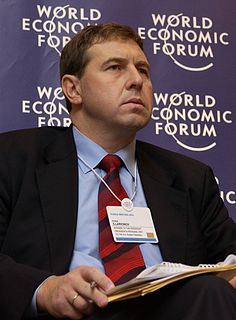A Quote by P. Chidambaram
It is possible that, post-Kyoto, the developed countries will recognise the requirements of the developing world.
Related Quotes
Globally, emissions may have to be reduced, the scientists are telling us, by as much as 60% or 70%, with developed countries likely to have to make even bigger cuts if we're going to allow the developing world to have their share of growing industrial prosperity...The Kyoto Protocol is only the first rather modest step. Much, much deeper emission reductions will be needed in future. The political implications are mind-blowing.
A considerable proportion of the developed world's prosperity rests on paying the lowest possible prices for the poor countries' primary products and on exporting high-cost capital and finished goods to those countries. Continuation of this kind of prosperity requires continuation of the relative gap between developed and underdeveloped countries - it means keeping poor people poor. Increasingly, the impoverished masses are understanding that the prosperity of the developed countries and of the privileged minorities in their own countries is founded on their poverty.
Oil is a very valuable resource for life - electric heaters. We must have to transition ourselves to a post-oil era. And that's what we must discuss: searching and developing new sources of energy. And that requires scientific research. That requires investment. And the developed countries must be the ones to assume this responsibility first.

































